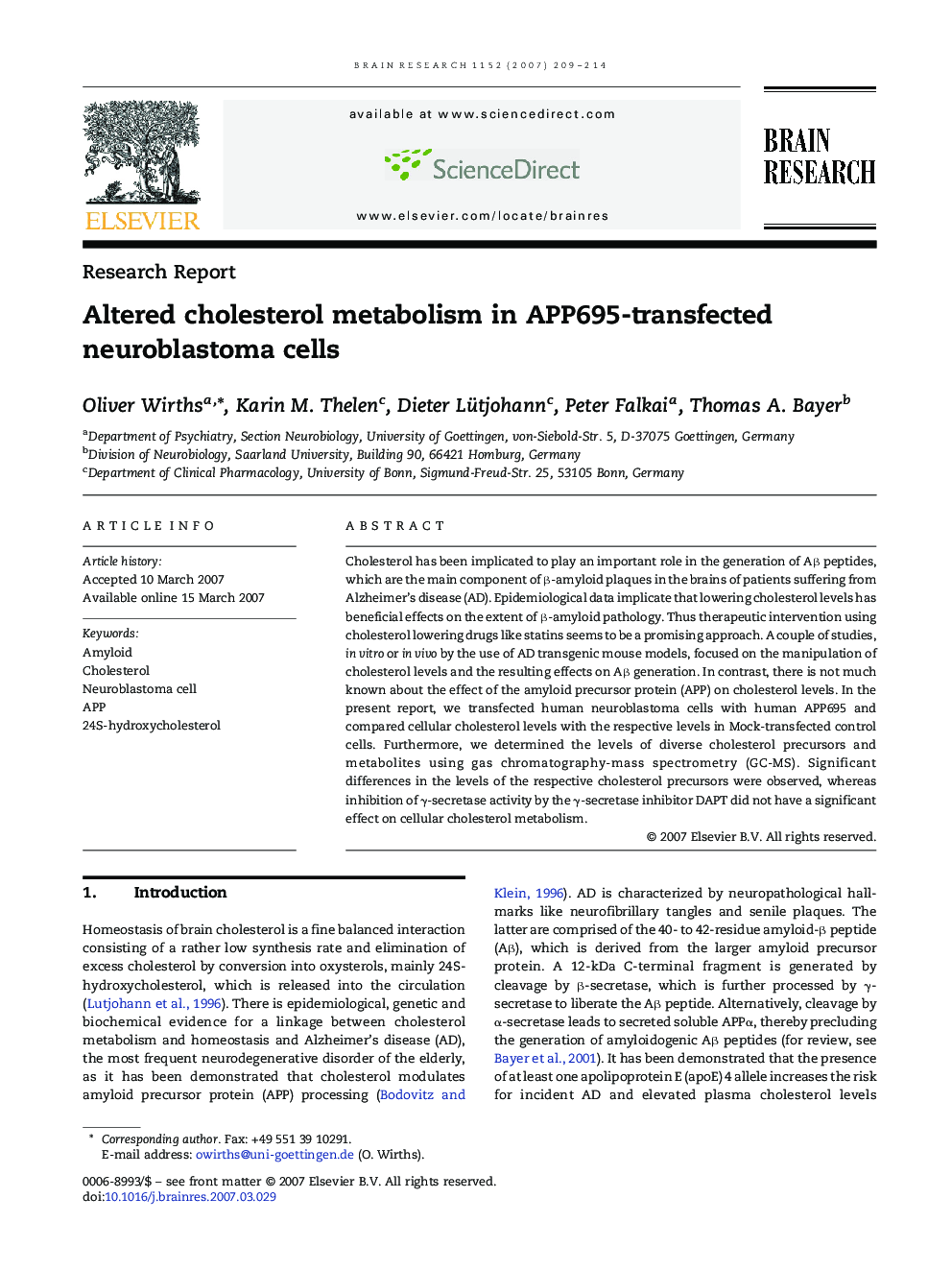| Article ID | Journal | Published Year | Pages | File Type |
|---|---|---|---|---|
| 4331002 | Brain Research | 2007 | 6 Pages |
Cholesterol has been implicated to play an important role in the generation of Aβ peptides, which are the main component of β-amyloid plaques in the brains of patients suffering from Alzheimer's disease (AD). Epidemiological data implicate that lowering cholesterol levels has beneficial effects on the extent of β-amyloid pathology. Thus therapeutic intervention using cholesterol lowering drugs like statins seems to be a promising approach. A couple of studies, in vitro or in vivo by the use of AD transgenic mouse models, focused on the manipulation of cholesterol levels and the resulting effects on Aβ generation. In contrast, there is not much known about the effect of the amyloid precursor protein (APP) on cholesterol levels. In the present report, we transfected human neuroblastoma cells with human APP695 and compared cellular cholesterol levels with the respective levels in Mock-transfected control cells. Furthermore, we determined the levels of diverse cholesterol precursors and metabolites using gas chromatography-mass spectrometry (GC-MS). Significant differences in the levels of the respective cholesterol precursors were observed, whereas inhibition of γ-secretase activity by the γ-secretase inhibitor DAPT did not have a significant effect on cellular cholesterol metabolism.
